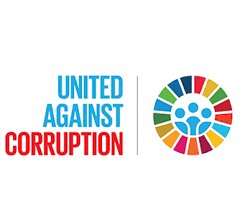
UN Convention against Corruption
UNITED NATIONS CONVENTION AGAINST CORRUPTION
The United Nations Convention against Corruption is the only legally binding universal anti-corruption instrument. The Convention's far-reaching approach and the mandatory character of many of its provisions make it a unique tool for developing a comprehensive response to a global problem. The Convention covers many different forms of corruption, such as bribery, trading in influence, abuse of functions, and various acts of corruption in the private sector;
It assesses the importance of preventing and responding to corruption and is divided in five main areas:
- Preventive measures à The Convention establishes a series of model preventive policies, such as the establishment of anticorruption bodies and enhanced transparency in the financing of election campaigns and political parties. The Convention calls on countries to promote actively the involvement of non-governmental and community-based organizations, as well as other elements of civil society, and to raise public awareness of corruption and what can be done about it.
- Criminalization and law enforcement à The Convention requires countries to establish criminal and other offences to cover a wide range of acts of corruption, that include laundering and private sector corruption if these are not already crimes under domestic law.
- International cooperation à Countries agreed to cooperate with one another in every aspect of the fight against corruption, including prevention, investigation, and the prosecution of offenders; They are bound to render specific forms of mutual legal assistance to undertake measures aimed at the tracing, and ultimately the confiscation of the proceeds of corruption.
- Asset recovery à Effective asset-recovery provisions will support the efforts of countries to redress the worst effects of corruption while sending at the same time, a message to corrupt officials that there will be no place to hide their illicit assets. The return of assets to countries of origin is a fundamental principle of this Convention.
- Technical assistance and information exchange à State Parties agree to initiate and develop specific training programmes aimed at combating corruption. They are encouraged to share the widest measure of technical assistance along with the results of studies and evaluations.
News
NGO call for applications to the 10th session of the Conference of the States Parties to the United Nations Convention against Corruption (UNCAC)
The United Nations Office on Drugs and Crime (UNODC) is pleased to inform you that the tenth session of the Conference of the States Parties to the United Nations Convention against Corruption will be held in Atlanta, United States of America from 11 to 15 December 2023. The application deadline is 23 June 2023.
10 May, 2023
News from the COSP to UNCAC - Joint press release by the UNCAC Coalition and TI
15 Dec, 2021
CIVIL SOCIETY PREPARATORY MEETING 9th Conference of the States Parties to the UNCAC (COSP 9)
Sunday, 12 December 2021 NGO Meeting Room, International Congress Centre (ICC) in Sharm el-Sheikh, Egypt
28 Oct, 2021
United Nations Convention against Corruption Registration Deadlines
Ninth Session of the Conference of the States Parties to the United Nations Convention against Corruption (UNCAC/COSP9) will be held in Sharm El-Sheikh, Egypt, from 13 to 17 December 2021.
11 Aug, 2021